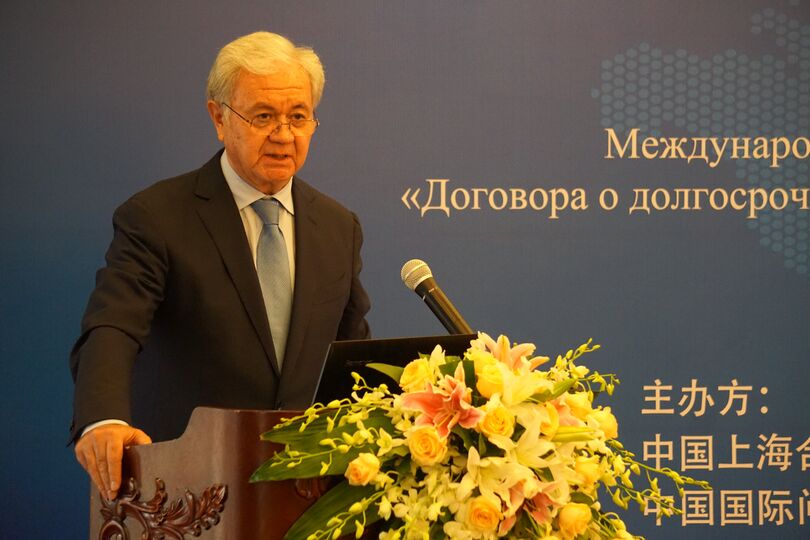On 25 September, Beijing hosted an international conference on the 10th anniversary of the signing and the 5th anniversary of the coming into force of the Treaty on Long-Term Good Neighbourliness, Friendship and Cooperation between the Member States of the Shanghai Cooperation Organization.
"Today's conference is one of the main events in China's action plan. The conference is aimed at addressing the history of establishing the SCO. Guided by the treaty, the SCO member states have achieved notable success in developing comprehensive mutual political trust, in the stable promotion of cooperation in all areas, and the continuous improvement of traditional friendship," Chinese Assistant Minister of Foreign Affairs Li Huilai said in his message of greetings to the conference participants.
Delivering a report at the conference, SCO Secretary-General Rashid Alimov said, that "in terms of importance, the Treaty can be compared to the SCO Charter. If the Charter is the soul of the organisation, the compass and the main guide, then the Treaty is, figuratively speaking, its conscience and the obligation of each member state to contribute to the appropriate, smooth and stable work of the compass that helps the SCO stay on path," Mr Alimov said.
After describing the main features of the Treaty, Mr Alimov said that "each provision of the document meets the national interests of all member states, as well as the interests of long-term joint development in the vast SCO space. The conjunction of national and common interests, their synergy, makes the Treaty stable and beneficial for each and all of its participants. The Treaty has strengthened and consolidated relations between the states that founded the SCO, and made the good-neighbourliness and friendship process irreversible. The ratification of the Treaty by every SCO state, including India and Pakistan, is confirmation of this."
Mr Alimov also covered the main aspects of cooperation in the Treaty. "The Treaty has contributed to the creation of one of the world's largest legal systems of regional cooperation, which is aimed at providing political stability, strengthening security, expanding economic interaction, and the joint development and prosperity of the SCO peoples," Mr Alimov said.
The researchers and experts offered a comprehensive analysis of the Treaty's provisions in their speeches and held a discussion on its practical importance for the multilateral interaction of SCO member states in politics, security, the economy and culture.
The China Centre for SCO Studies and the China Institute of International Studies were the conference organisers. The event is one of China's planned events at the conference. China currently holds the rotating presidency in the SCO. The conference was attended by representatives from the Chinese Foreign Ministry, ambassadors and diplomats from SCO member states accredited in Beijing, as well as heads and analysts from leading research institutions and think tanks in the SCO states.
The Treaty on Long-Term Good Neighbourliness, Friendship and Cooperation was signed on 16 August 2007 at a meeting of the SCO Heads of State Council in Bishkek. The Treaty came into force on 31 October 2012. In accordance with its Article 26, the document was registered at the UN Secretariat on 1 February 2013 under the number 50518. In March 2017, Pakistan and India joined the Treaty.
The China Institute of International Studies (CIIS) was founded in 1956. It is a specialised research facility under the Chinese Ministry of Foreign Affairs. CIIS is one of the top-ten reputable think tanks in China, and ranks second in terms of importance among foreign policy think tanks after the Chinese Academy of Social Sciences (CASS). Since 2006, CIIS has been included in the Chinese national part of the SCO Forum.
